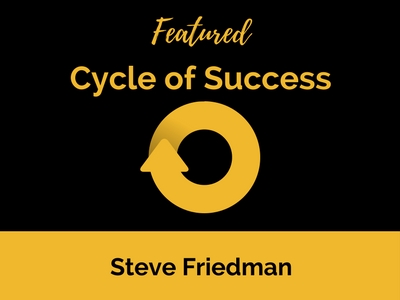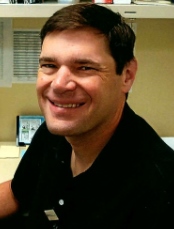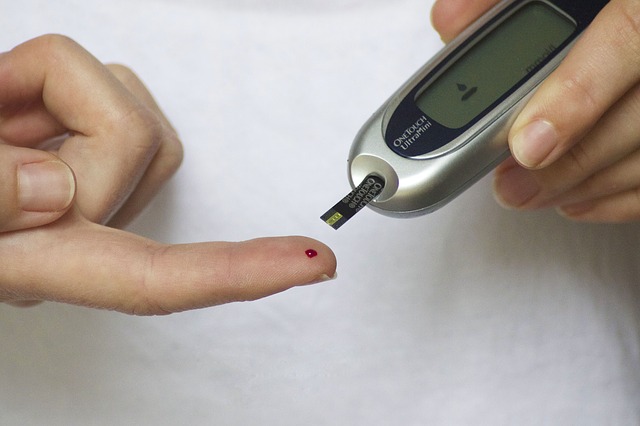4 May 2017
We recently started doing a monthly announcement on new CVM publications. See the inaugural installment. Because it seemed strange to start with items published in April, we’re doing one longer “catch up” announcement to highlight CVM faculty research going back to January. Congratulations to all the 2017 authors!
Below are College of Veterinary Medicine publications added to the Scopus database from January to March 2017.
A note on the links: the doi link will take you directly to the publisher’s web page. The PMID link will take you into PubMed; the PMCID link into PubMed Central. Full-text availability will depend on your institution’s subscriptions.
PubMed Collection of MU CVM Publications 2017
Journal Articles
Gustafson NA, Gandolfi B, Lyons LA. Not another type of potato: MC1R and the russet coloration of Burmese cats. Animal Genetics. 2017;48(1):116-20. doi: 10.1111/age.12505. PubMed PMID: 27671997.
Kumar SR, Bryan JN, Esebua M, Amos-Landgraf J, May TJ. Testis specific Y-like 5: Gene expression, methylation and implications for drug sensitivity in prostate carcinoma. BMC Cancer. 2017;17(1):158. doi: 10.1186/s12885-017-3134-7. PubMed PMID: 28235398; PMCID: PMC5326500. Open Access Article
Yang M, Zhang C, Zhang MZ, Zhang S. Novel synthetic analogues of avian β-defensin-12: The role of charge, hydrophobicity, and disulfide bridges in biological functions. BMC Microbiology. 2017;17(1):43. doi: 10.1186/s12866-017-0959-9. PubMed PMID: 28231771; PMCID: PMC5324278. Open Access Article
Marković M, Daković A, Rottinghaus GE, Kragović M, Petković A, Krajišnik D, Milić J, Mercurio M, de Gennaro B. Adsorption of the mycotoxin zearalenone by clinoptilolite and phillipsite zeolites treated with cetylpyridinium surfactant. Colloids and Surfaces B: Biointerfaces. 2017;151:324-32. doi: 10.1016/j.colsurfb.2016.12.033. PubMed PMID: 28040664.
Clemensen AK, Provenza FD, Lee ST, Gardner DR, Rottinghaus GE, Villalba JJ. Plant secondary metabolites in alfalfa, birdsfoot trefoil, reed canarygrass, and tall fescue unaffected by two different nitrogen sources. Crop Science. 2017;57(2):964-70. doi: 10.2135/cropsci2016.08.0680.
Zhang T, Zhou Y, Li L, Wang ZB, Shen W, Schatten H, Sun QY. CenpH regulates meiotic G2/M transition by modulating the APC/CCdh1-cyclin B1 pathway in oocytes. Development (Cambridge). 2017;144(2):305-12. doi: 10.1242/dev.141135. PubMed PMID: 27993978.
Booth FW, Ruegsegger GN. A Fatty Liver Is Neither Appetizing Nor Healthy. Exercise and Sport Sciences Reviews. 2017;45(1):6. doi: 10.1249/JES.0000000000000090. PubMed PMID: 27603437.
Michelin EC, Massocco MM, Godoy SHS, Baldin JC, Yasui GS, Lima CG, Rottinghaus GE, Sousa RLM, Fernandes AM. Carryover of aflatoxins from feed to lambari fish (Astyanax altiparanae) tissues. Food Additives and Contaminants – Part A Chemistry, Analysis, Control, Exposure and Risk Assessment. 2017;34(2):265-72. doi: 10.1080/19440049.2016.1266097. PubMed PMID: 27967601.
Ericsson AC, Personett AR, Turner G, Dorfmeyer RA, Franklin CL. Variable colonization after reciprocal fecal microbiota transfer between mice with low and high richness microbiota. Frontiers in Microbiology. 2017;8(FEB):196. doi: 10.3389/fmicb.2017.00196. PubMed PMID: 28280484; PMCID: PMC5322181. Open Access Article
Katz ML, Johnson GC, Leach SB, Williamson BG, Coates JR, Whiting REH, Vansteenkiste DP, Whitney MS. Extraneuronal pathology in a canine model of CLN2 neuronal ceroid lipofuscinosis after intracerebroventricular gene therapy that delays neurological disease progression. Gene Therapy. 2017;24(4):215-23. doi: 10.1038/gt.2017.4. PubMed PMID: 28079862.
Lacey CA, Mitchell WJ, Brown CR, Skyberg JA. Temporal role for MyD88 in a model of Brucella-induced arthritis and musculoskeletal inflammation. Infection and Immunity. 2017;85(3). doi: 10.1128/IAI.00961-16. PubMed PMID: 28069819.
Han F, Lu A, Yuan Y, Huang W, Beerntsen BT, Huang J, Ling E. Characterization of an entomopathogenic fungi target integument protein, Bombyx mori single domain von Willebrand factor type C, in the silkworm, Bombyx mori. Insect Molecular Biology. 2017;26(3):308-16. doi: 10.1111/imb.12293. PubMed PMID: 28168773.
Kantor AM, Dong S, Held NL, Ishimwe E, Passarelli AL, Clem RJ, Franz AWE. Identification and initial characterization of matrix metalloproteinases in the yellow fever mosquito, Aedes aegypti. Insect Molecular Biology. 2017;26(1):113-26. doi: 10.1111/imb.12275. PubMed PMID: 28054419.
Marín MP, Meléndez PG, Aranda P, Ríos C. Conjugated linoleic acid content and fatty acids profile of milk from grazing dairy cows in southern Chile fed varying amounts of concentrate. Journal of Applied Animal Research. 2017:1-5. doi: 10.1080/09712119.2016.1277729.
Olver TD, Hiemstra JA, Edwards JC, Ferguson BS, Laughlin MH, Emter CA. The protective role of sex hormones in females and exercise prehabilitation in males on sternotomy-induced cranial hypoperfusion in aortic banded miniswine. Journal of Applied Physiology. 2017;122(3):423-9. doi: 10.1152/japplphysiol.00817.2016. PubMed PMID: 27909230.
Erikson JM, Valente AJ, Mummidi S, Kandikattu HK, Demarco VG, Bender SB, Fay WP, Siebenlist U, Chandrasekar B. Targeting TRAF3IP2 by genetic and interventional approaches inhibits ischemia/reperfusion-induced myocardial injury and adverse remodeling. Journal of Biological Chemistry. 2017;292(6):2345-58. doi: 10.1074/jbc.M116.764522. PubMed PMID: 28053087.
Johnson SA, Painter MS, Javurek AB, Murphy CR, Howald EC, Khan ZZ, Conard CM, Gant KL, Ellersieck MR, Hoffmann F, Schenk AK, Rosenfeld CS. Characterization of vocalizations emitted in isolation by california mouse (peromyscus californicus) pups throughout the postnatal period. Journal of Comparative Psychology. 2017;131(1):30-9. doi: 10.1037/com0000057. PubMed PMID: 28182483.
Johnson SA, Javurek AB, Painter MS, Murphy CR, Conard CM, Gant KL, Howald EC, Ellersieck MR, Wiedmeyer CE, Vieira-Potter VJ, Rosenfeld CS. Effects of a maternal high-fat diet on offspring behavioral and metabolic parameters in a rodent model. Journal of Developmental Origins of Health and Disease. 2017;8(1):75-88. doi: 10.1017/S2040174416000490. PubMed PMID: 27609493.
Rosenfeld CS. Homage to the ‘H’ in developmental origins of health and disease. Journal of Developmental Origins of Health and Disease. 2017;8(1):8-29. doi: 10.1017/S2040174416000465. PubMed PMID: 27577791.
Zhang Y, Olson RM, Brown CR. Macrophage LTB4 drives efficient phagocytosis of Borrelia burgdorferi via BLT1 or BLT2. Journal of Lipid Research. 2017;58(3):494-503. doi: 10.1194/jlr.M068882. PubMed PMID: 28053185.
Agosto-Marlin IM, Nichols NL, Mitchell GS. Adenosine-dependent phrenic motor facilitation is inflammation resistant. Journal of Neurophysiology. 2017;117(2):836-45. doi: 10.1152/jn.00619.2016. PubMed PMID: 27927784.
Rosenfeld CS. Sex-dependent differences in voluntary physical activity. Journal of Neuroscience Research. 2017;95(1-2):279-90. doi: 10.1002/jnr.23896. PubMed PMID: 27870424.
Ruegsegger GN, Toedebusch RG, Childs TE, Grigsby KB, Booth FW. Loss of Cdk5 function in the nucleus accumbens decreases wheel running and may mediate age-related declines in voluntary physical activity. Journal of Physiology. 2017;595(1):363-84. doi: 10.1113/JP272489. PubMed PMID: 27461471.
Jhanji V, Chan TCY, Li WY, Lim RR, Yu MCY, Law K, Yi P, Yip YWY, Wang Y, Ng TK, Chaurasia SS, Mohan RR. Conventional versus inverted side-cut flaps for femtosecond laser-assisted LASIK: Laboratory and clinical evaluation. Journal of Refractive Surgery. 2017;33(2):96-103. doi: 10.3928/1081597X-20161102-02. PubMed PMID: 28192588.
Birks R, Fine DM, Leach SB, Clay SE, Eason BD, Britt LG, Lamb KE. Breed-specific vertebral heart scale for the dachshund. Journal of the American Animal Hospital Association. 2017;53(2):73-9. doi: 10.5326/JAAHA-MS-6474. PubMed PMID: 28282234.
Harmon MW, Leach SB, Lamb KE. Dilated cardiomyopathy in standard schnauzers: Retrospective study of 15 cases. Journal of the American Animal Hospital Association. 2017;53(1):38-44. doi: 10.5326/JAAHA-MS-6506. PubMed PMID: 27841675.
Whelchel DD, Tennent-Brown BS, Coleman AE, Rapoport GS, Blas-Machado U, Maisenbacher HW, Credille BC, Giguère S. Treatment of supraventricular tachycardia in a horse. Journal of Veterinary Emergency and Critical Care. 2017. doi: 10.1111/vec.12591. PubMed PMID: 28267896.
Harris RA, Grobman ME, Allen MJ, Schachtel J, Rawson NE, Bennett B, Ledyayev J, Hopewell B, Coates JR, Reinero CR, Lever TE. Standardization of a Videofluoroscopic Swallow Study Protocol to Investigate Dysphagia in Dogs. Journal of Veterinary Internal Medicine. 2017;31(2):383-93. doi: 10.1111/jvim.14676. PubMed PMID: 28240398; PMCID: PMC5354069. Open Access Article
Kolicheski A, Barnes Heller HL, Arnold S, Schnabel RD, Taylor JF, Knox CA, Mhlanga-Mutangadura T, O’Brien DP, Johnson GS, Dreyfus J, Katz ML. Homozygous PPT1 Splice Donor Mutation in a Cane Corso Dog With Neuronal Ceroid Lipofuscinosis. Journal of Veterinary Internal Medicine. 2017;31(1):149-57. doi: 10.1111/jvim.14632. PubMed PMID: 28008682; PMCID: PMC5259623. Open Access Article
Mauler DA, Gandolfi B, Reinero CR, O’Brien DP, Spooner JL, Lyons LA, and 99 Lives C. Precision Medicine in Cats: Novel Niemann-Pick Type C1 Diagnosed by Whole-Genome Sequencing. Journal of Veterinary Internal Medicine. 2017;31(2):539-44. doi: 10.1111/jvim.14599. PubMed PMID: 28233346; PMCID: PMC5354023. Open Access Article
Packer RA, Logan MA, Guo LT, Apte SS, Bader H, O’Brien DP, Johnson G, Shelton GD. Clinical Phenotype of Musladin-Lueke Syndrome in 2 Beagles. Journal of Veterinary Internal Medicine. 2017;31(2):532-8. doi: 10.1111/jvim.14654. PubMed PMID: 28158899; PMCID: PMC5354057. Open Access Article
Toedebusch CM, Bachrach MD, Garcia VB, Johnson GC, Katz ML, Shaw G, Coates JR, Garcia ML. Cerebrospinal Fluid Levels of Phosphorylated Neurofilament Heavy as a Diagnostic Marker of Canine Degenerative Myelopathy. Journal of Veterinary Internal Medicine. 2017;31(2):513-20. doi: 10.1111/jvim.14659. PubMed PMID: 28186658; PMCID: PMC5354061. Open Access Article
Aberdein D, Munday JS, Gandolfi B, Dittmer KE, Malik R, Garrick DJ, Lyons LA, 99 Lives Consortium. A FAS-ligand variant associated with autoimmune lymphoproliferative syndrome in cats. Mammalian Genome. 2017;28(1-2):47-55. doi: 10.1007/s00335-016-9668-1. PubMed PMID: 27770190.
Park YM, Padilla J, Kanaley JA, Zidon TM, Welly RJ, Britton SL, Koch LG, Thyfault JP, Booth FW, Vieira-Potter VJ. Voluntary Running Attenuates Metabolic Dysfunction in Ovariectomized Low-Fit Rats. Medicine and Science in Sports and Exercise. 2017;49(2):254-64. doi: 10.1249/MSS.0000000000001101. PubMed PMID: 27669449.
Bostick B, Aroor AR, Habibi J, Durante W, Ma L, DeMarco VG, Garro M, Hayden MR, Booth FW, Sowers JR. Daily exercise prevents diastolic dysfunction and oxidative stress in a female mouse model of western diet induced obesity by maintaining cardiac heme oxygenase-1 levels. Metabolism: Clinical and Experimental. 2017;66:14-22. doi: 10.1016/j.metabol.2016.09.005. PubMed PMID: 27923445.
Olson RM, Anderson DM. Fractionation techniques to examine effector translocation. Methods in Molecular Biology. 2017;1531:101-9. doi: 10.1007/978-1-4939-6649-3_9. PubMed PMID: 27837485.
Laughlin MH, Yang HT, Tharp DL, Rector RS, Padilla J, Bowles DK. Vascular cell transcriptomic changes to exercise training differ directionally along and between skeletal muscle arteriolar trees. Microcirculation. 2017;24(2). doi: 10.1111/micc.12336. PubMed PMID: 27889934.
Radford L, Gallazzi F, Watkinson L, Carmack T, Berendzen A, Lewis MR, Jurisson SS, Papagiannopoulou D, Hennkens HM. Synthesis and evaluation of a 99mTc tricarbonyl-labeled somatostatin receptor-targeting antagonist peptide for imaging of neuroendocrine tumors. Nuclear Medicine and Biology. 2017;47:4-9. doi: 10.1016/j.nucmedbio.2016.12.002. PubMed PMID: 28043006.
Ruegsegger GN, Toedebusch RG, Braselton JF, Childs TE, Booth FW. Left ventricle transcriptomic analysis reveals connective tissue accumulation associates with initial age-dependent decline in V˙o2peakfrom its lifetime apex. Physiological Genomics. 2017;49(1):53-66. doi: 10.1152/physiolgenomics.00083.2016. PubMed PMID: 27913688.
Johnson SA, Spollen WG, Manshack LK, Bivens NJ, Givan SA, Rosenfeld CS. Hypothalamic transcriptomic alterations in male and female California mice (Peromyscus californicus) developmentally exposed to bisphenol A or ethinyl estradiol. Physiological Reports. 2017;5(3). doi: 10.14814/phy2.13133. PubMed PMID: 28196854; PMCID: PMC5309579. Open Access Article
Vientos-Plotts AI, Ericsson AC, Rindt H, Grobman ME, Graham A, Bishop K, Cohn LA, Reinero CR. Dynamic changes of the respiratory microbiota and its relationship to fecal and blood microbiota in healthy young cats. PLoS ONE. 2017;12(3):e0173818. doi: 10.1371/journal.pone.0173818. PubMed PMID: 28278278; PMCID: PMC5344508. Open Access Article
Sheridan MA, Yunusov D, Balaraman V, Alexenko AP, Yabe S, Verjovski-Almeida S, Schust DJ, Franz AW, Sadovsky Y, Ezashi T, Roberts RM. Vulnerability of primitive human placental trophoblast to Zika virus. Proceedings of the National Academy of Sciences of the United States of America. 2017;114(9):E1587-E96. doi: 10.1073/pnas.1616097114. PubMed PMID: 28193876; PMCID: PMC5338554. Open Access Article
Koestel ZL, Backus RC, Tsuruta K, Spollen WG, Johnson SA, Javurek AB, Ellersieck MR, Wiedmeyer CE, Kannan K, Xue J, Bivens NJ, Givan SA, Rosenfeld CS. Bisphenol A (BPA) in the serum of pet dogs following short-term consumption of canned dog food and potential health consequences of exposure to BPA. Science of the Total Environment. 2017;579:1804-14. doi: 10.1016/j.scitotenv.2016.11.162. PubMed PMID: 27932218.
Zhang H, Dong S, Chen X, Stanley D, Beerntsen B, Feng Q, Song Q. Relish2 mediates bursicon homodimer-induced prophylactic immunity in the mosquito Aedes aegypti. Scientific Reports. 2017;7:43163. doi: 10.1038/srep43163. PubMed PMID: 28225068; PMCID: PMC5320557. Open Access Article
Barnes SL, Kerby J, Armstrong J, Llerena L, Bukoski A, Anton J. Response to: Comment on: Live tissue versus simulation training for emergency procedures: Is simulation ready to replace live tissue? Surgery (United States). 2017;161(5):1464-5. doi: 10.1016/j.surg.2017.01.004. PubMed PMID: 28202198.
Abel JM, Bishop BE, Thomas JM, Ellersieck MR, Poock SE, Smith MF, Patterson DJ. Comparing strategies to synchronize estrus before fixed-time artificial insemination in primiparous 2-year-old beef cows. Theriogenology. 2017;87:306-15. doi: 10.1016/j.theriogenology.2016.09.010. PubMed PMID: 27771115.
Bishop BE, Thomas JM, Abel JM, Poock SE, Ellersieck MR, Smith MF, Patterson DJ. Split-time artificial insemination in beef cattle: II. Comparing pregnancy rates among nonestrous heifers based on administration of GnRH at AI. Theriogenology. 2017;87:229-34. doi: 10.1016/j.theriogenology.2016.08.029. PubMed PMID: 27707546.
Thomas JM, Locke JWC, Bishop BE, Abel JM, Ellersieck MR, Yelich JV, Poock SE, Smith MF, Patterson DJ. Evaluation of the 14-d CIDR-PG and 9-d CIDR-PG protocols for synchronization of estrus in Bos indicus-influenced and Bos taurus beef heifers. Theriogenology. 2017;92:190-6. doi: 10.1016/j.theriogenology.2017.01.020. PubMed PMID: 28237335.
Nagy DW. Diagnostics and Ancillary Tests of Neurologic Dysfunction in the Ruminant. Veterinary Clinics of North America – Food Animal Practice. 2017;33(1):9-18. doi: 10.1016/j.cvfa.2016.09.002. PubMed PMID: 28166937.
Lee JA, Cohn LA. Fluid Therapy for Pediatric Patients. Veterinary Clinics of North America – Small Animal Practice. 2017;47(2):373-82. doi: 10.1016/j.cvsm.2016.09.010. PubMed PMID: 27939859.
Gronkiewicz KM, Giuliano EA, Sharma A, Mohan RR. Effects of topical hyaluronic acid on corneal wound healing in dogs: a pilot study. Veterinary Ophthalmology. 2017;20(2):123-30. doi: 10.1111/vop.12379. PubMed PMID: 27061134.
Spertus CB, Brown JM, Giuliano EA. Diamond burr debridement vs. grid keratotomy in canine SCCED with scanning electron microscopy diamond burr tip analysis. Veterinary Ophthalmology. 2017. doi: 10.1111/vop.12460. PubMed PMID: 28181368.
Torres BT, Fu YC, Sandberg GS, Budsberg SC. Pelvic limb kinematics in the dog with and without a stifle orthosis. Veterinary Surgery. 2017. doi: 10.1111/vsu.12634. PubMed PMID: 28198549.

The Zalk Veterinary Medical Library is always happy to highlight CVM Faculty Research!
Did we miss anything? Please let Kate know.












